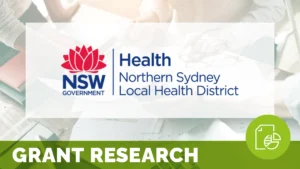Co-Design, Co-Production or a PFA Program? Where Do We Go From Here?
Published June 30, 2021


Tiffany Christensen, CPXP | Vice President, Experience Excellence, The Beryl Institute
As partnership strategies evolve, the practices for working with patient and family advisors or using co-design or co-production are not always clear. As we look to rebuild together, the integration of patients and care partner perspectives are taking center-stage. But how do we know what structures are best for us to build? What are the best ways to utilize the time and energy of our volunteers? How do we make sure the strategies we use include the populations we serve? Join Tiffany Christensen, Vice President for Experience Excellence at the Beryl Institute, for the last in a three-part series on the power of the PFA and how co-design is crucial for the future of healthcare.
Related content
-
Innovation & Technology | Patient Family & Community Engagement
Building Trust in Healthcare: Insights from UAB Medicine’s Humanistic Care Study
Published January 16, 2025

Join Chris Brainard, Associate Vice President at UAB Medicine, and Amber Maraccini, VP of Healthcare Executive Advisory at Medallia, for a fireside chat on UAB’s innovative strategies to build trust in patient care. Explore how provider behaviors—like listening patiently and showing empathy—improve trust, outcomes, and patient experiences. Learn about the Medallia-Arnold P. Gold Foundation Humanism
Learn more -
Patient Family & Community Engagement
Evaluating the Net Promoter Score to improve the emergency department patient experience in real-time
Published July 17, 2025

Northern Sydney Health District evaluated whether the Net Promoter Score (NPS) survey provided deeper insights of patient experience in the ED than an existing satisfaction survey. The study concluded that the NPS was statistically and clinically significant and is a recommended metric for measuring both patient satisfaction and experience in ED’s and other hospital settings.
Learn more -
Patient Family & Community Engagement
My Life, My Story and Life Recovery among Veterans with Substance Use Problems
Published May 5, 2025

The United States Veterans Health Administration My Life, My Story (MLMS) program is a patient-centered care intervention where veterans are interviewed about their life story and may grant permission to include it in their electronic health record (EHR). Our purpose was to focus on a sample of MLMS narratives from veterans with self-disclosed substance use
Learn more
